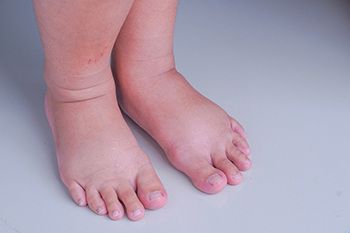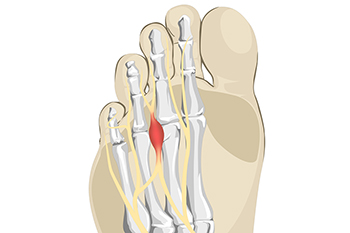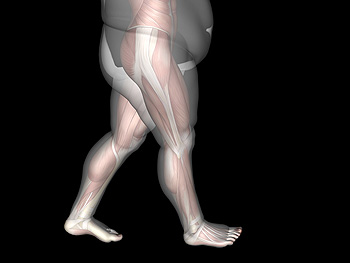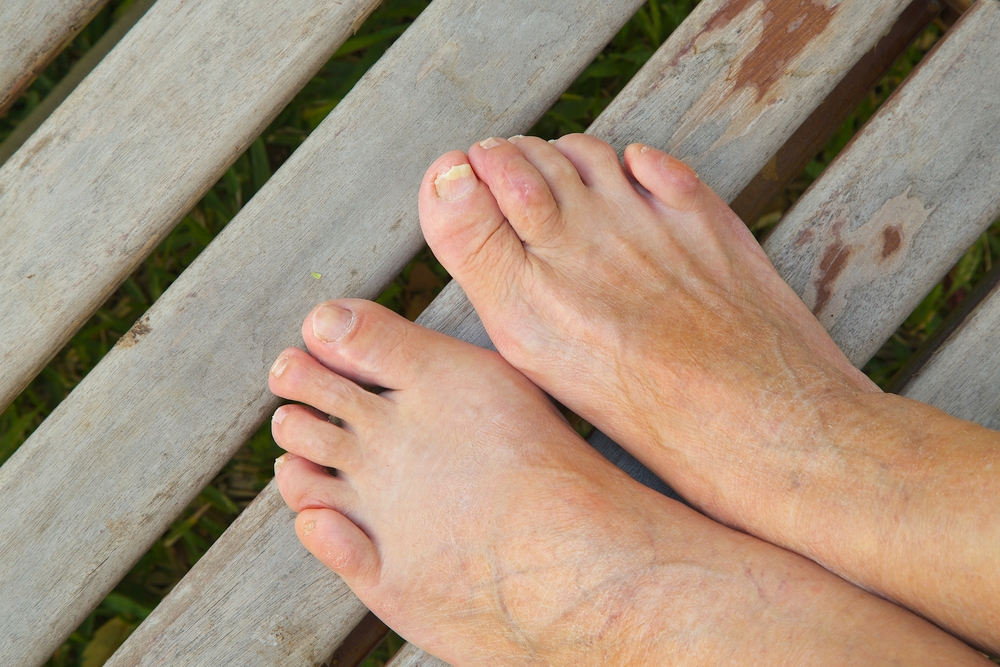Connect With Us
Blog
Items filtered by date: January 2023
Your Feet Should Swell Together

When feet become swollen, it most likely will affect both of them. One swollen foot may be cause for alarm, and it is advised that prompt medical attention is obtained from a podiatrist. One swollen foot may indicate an allergy or infection, possibly causing serious complications if not treated. When both feet are swollen, it is a common condition and can happen for various reasons. These can include water retention from circulatory issues, pregnancy, or premenstrual disorders. Swollen feet may be improved by following a gentle exercise regime and drinking plenty of water. Additionally, having regular massages and reducing sodium intake may help to alleviate swollen ankles. If you suffer from this condition, it is advised that you consult with a podiatrist who can determine what the cause is and offer correct treatment options.
Swollen feet can be a sign of an underlying condition. If you have any concerns, contact one of our podiatrists of Bergen Foot & Ankle. Our doctors can provide the care you need to keep you pain-free and on your feet.
Swollen feet are a common ailment among pregnant women and people who stand or sit for extended periods. Aging may increase the possibility of swollen feet and patients who are obese often notice when their feet are swelling too. There may be medical reasons why swollen feet occur:
- Phlebitis - A condition that causes the veins to become inflamed and can also cause leg pain.
- Liver disease - This may lead to low blood levels of albumin which is a protein. This can cause fluid in the blood to pass into the tissues and several areas of the body can become swollen.
- Heart failure - When the heart doesn’t pump properly the blood that is normally pumped back to the heart can pool in the veins of the legs causing swollen feet.
- Kidney disease - One of the main functions of the kidneys is releasing excess fluid in the body. This type of condition can make it difficult for the kidneys to function properly, and as a result the feet may become swollen.
- Deep-vein thrombosis (DVT)- This is a serious condition where blood clots form in the veins of the legs. They can block the return of blood from the legs to the heart which may cause the feet to swell. It is important to be treated by a podiatrist if this condition is present.
Swollen feet can also be caused by bone and tendon conditions, including fractures, arthritis, and tendinitis. Additionally, there may be skin and toenail conditions and an infection may cause the feet to swell. Patients who take medicine to treat high blood pressure may be prone to getting swollen feet.
Many patients elevate their feet to help relieve the swelling and this is generally a temporary remedy. When a podiatrist is consulted the reason behind the swelling can be uncovered and subsequently treated.
If you have any questions please feel free to contact our offices located in Fort Lee, NJ and Flushing, NY . We offer the newest diagnostic tools and technology to treat your foot and ankle needs.
Constricting Shoes May Cause Morton’s Neuroma

Morton’s neuroma is one of the most painful foot conditions that can develop. The pain is felt between the third and fourth toes and results due to an inflamed nerve. If the arch is weak the nerve can become compressed, causing the tissues to thicken. This can happen from wearing shoes that do not have enough room for the toes to move freely in, therefore the nerve becomes irritated. A numbness or tingling sensation can often be felt with this condition and walking may become difficult. Morton’s neuroma may also gradually develop from extreme overpronation which is the foot continuously rolling inward while walking. This may cause the bones in the front of the foot to compress the nerve. Effective treatment generally begins with frequently resting the foot and some patients choose to insert a cushioned pad into the shoe. If you have developed Morton’s neuroma, please confer with a podiatrist who can effectively treat this condition while offering you pain relief options.
Morton’s neuroma is a very uncomfortable condition to live with. If you think you have Morton’s neuroma, contact one of our podiatrists of Bergen Foot & Ankle. Our doctors will attend to all of your foot care needs and answer any of your related questions.
Morton’s Neuroma
Morton's neuroma is a painful foot condition that commonly affects the areas between the second and third or third and fourth toe, although other areas of the foot are also susceptible. Morton’s neuroma is caused by an inflamed nerve in the foot that is being squeezed and aggravated by surrounding bones.
What Increases the Chances of Having Morton’s Neuroma?
- Ill-fitting high heels or shoes that add pressure to the toe or foot
- Jogging, running or any sport that involves constant impact to the foot
- Flat feet, bunions, and any other foot deformities
Morton’s neuroma is a very treatable condition. Orthotics and shoe inserts can often be used to alleviate the pain on the forefront of the feet. In more severe cases, corticosteroids can also be prescribed. In order to figure out the best treatment for your neuroma, it’s recommended to seek the care of a podiatrist who can diagnose your condition and provide different treatment options.
If you have any questions, please feel free to contact our offices located in Fort Lee, NJ and Flushing, NY . We offer the newest diagnostic and treatment technologies for all your foot care needs.
Children’s Ankle Braces

As a young child grows, matures, and engages in physical activities such as school sports, it is common for the child to possibly experience some kind of foot condition. Ankle complications can be common among children, particularly because overuse injuries and growth spurts can put pressure on the ankle. There are many different ways to treat ankle injuries such as sprains among children, depending on the nature and severity of the injury. One way in which a medical professional might recommend treating a child’s ankle injury is with the use of an ankle brace. For example, ankle sprains and stress fractures may be significantly supported by the use of an ankle brace of some kind. Ankle braces come in different shapes and sizes. Typically, they may look like a kind of boot or wrap. If your child is struggling with an ankle injury, talk to your podiatrist about ankle braces or other devices that may help the foot heal. Please schedule an appointment today for correct treatment options.
Making sure that your children maintain good foot health is very important as they grow. If you have any questions, contact one of our podiatrists of Bergen Foot & Ankle. Our doctors can provide the care you need to keep you pain-free and on your feet.
Keeping Children's Feet Healthy
Having healthy feet during childhood can help prevent medical problems later in life, namely in the back and legs. As children grow, their feet require different types of care. Here are some things to consider...
Although babies do not walk yet, it is still very important to take care of their feet.
Avoid putting tight shoes or socks on his or her feet.
Allow the baby to stretch and kick his or her feet to feel comfortable.
As a toddler, kids are now on the move and begin to develop differently. At this age, toddlers are getting a feel for walking, so don’t be alarmed if your toddler is unsteady or ‘walks funny’.
As your child gets older, it is important to teach them how to take care of their feet.
Show them proper hygiene to prevent infections such as fungus.
Be watchful for any pain or injury.
Have all injuries checked by a doctor as soon as possible.
Comfortable, protective shoes should always be worn, especially at play.
If you have any questions please feel free to contact our offices located in Fort Lee, NJ and Flushing, NY . We offer the newest diagnostic and treatment technologies for all your foot and ankle needs.
Obesity and Orthotics

When an individual is significantly overweight, it can become more likely that they will experience some kind of foot complication. This is largely because the increased weight essentially puts more pressure on the feet which can cause pain, discomfort, and strain. Obese individuals might be able to benefit from the use of orthotics, which are shoe inserts that are either custom-made or over-the-counter. One important consideration to keep in mind is that people struggling with obesity might benefit from orthotics that are thicker in texture and shape than what is ordinarily worn. Additionally, obese people might benefit from orthotics that are more rigid in shape. The orthotics that are more soft and pliable might not be as effective for obese individuals. This is because a thicker and more rigid orthotic device might be better situated to support the extra weight of an obese individual. If you struggle with obesity, contact a podiatrist today for assistance.
Obesity has become very problematic at this point in time and can have extremely negative effects on the feet. If you’re an obese individual and are concerned about your feet, contact one of our podiatrists from Bergen Foot & Ankle. Our doctors can provide the care you need to keep you pain-free and on your feet.
Obesity and Your Feet
Since your feet are what support your entire weight when standing, any additional weight can result in pain and swelling. Being overweight is one of the main contributors to foot complications.
Problems & Complications
Extra Weight – Even putting on just a few extra pounds could create serious complications for your feet. As your weight increases, your balance and body will shift, creating new stresses on your feet. This uneven weight distribution can cause pain, even while doing the simplest tasks, such as walking.
Diabetes – People who are overweight are at serious risk of developing type-2 diabetes, which has a drastic impact on the health of your feet. As you get older, your diabetes might worsen, which could lead to loss of feeling in your feet, sores, and bruises. You could also become more prone to various infections.
Plantar fasciitis – Pressure and stress that is placed on muscles, joints, and tendons can trigger plantar fasciitis, which is an inflammation of tissue that forms along the bottom of the foot.
If you have any questions please feel free to contact our offices located in Fort Lee, NJ and Flushing, NY . We offer the newest diagnostic and treatment technologies for all your foot and ankle needs.
Heel Pain in the Morning?
Hammertoe and Orthotics

A hammertoe is a condition that makes the toe point upwards at the joint in an unnatural way. As a result, the toe resembles a hammer. There are several ways that a medical professional might go about helping you correct this deformity. Orthotics can play an important role in the correction process. Orthotics are special inserts that can be either custom-made or one-size-fits-all, and they can help people correct deformities or their gait. A medical professional might recommend the use of orthotics for hammertoes. One specific kind of orthotic for hammertoes is known as a hammer toe crest pad. The hammertoe is essentially held in place by this pad, which is positioned underneath the toes. The crest pad resembles a kind of ring that goes around the hammertoe. This device is meant to support and mitigate the hammertoe condition. If you are afflicted with hammertoe and think that you might be a good candidate for orthotics, consult a podiatrist today for more information.
Hammertoe
Hammertoes can be a painful condition to live with. For more information, contact one of our podiatrists from Bergen Foot & Ankle. Our doctors will answer any of your foot- and ankle-related questions.
Hammertoe is a foot deformity that affects the joints of the second, third, fourth, or fifth toes of your feet. It is a painful foot condition in which these toes curl and arch up, which can often lead to pain when wearing footwear.
Symptoms
- Pain in the affected toes
- Development of corns or calluses due to friction
- Inflammation
- Redness
- Contracture of the toes
Causes
Genetics – People who are genetically predisposed to hammertoe are often more susceptible
Arthritis – Because arthritis affects the joints in your toes, further deformities stemming from arthritis can occur
Trauma – Direct trauma to the toes could potentially lead to hammertoe
Ill-fitting shoes – Undue pressure on the front of the toes from ill-fitting shoes can potentially lead to the development of hammertoe
Treatment
Orthotics – Custom made inserts can be used to help relieve pressure placed on the toes and therefore relieve some of the pain associated with it
Medications – Oral medications such as anti-inflammatories or NSAIDs could be used to treat the pain and inflammation hammertoes causes. Injections of corticosteroids are also sometimes used
Surgery – In more severe cases where the hammertoes have become more rigid, foot surgery is a potential option
If you have any questions please contact our offices located in Fort Lee, NJ and Flushing, NY . We offer the newest diagnostic and treatment technologies for all your foot and ankle needs.

